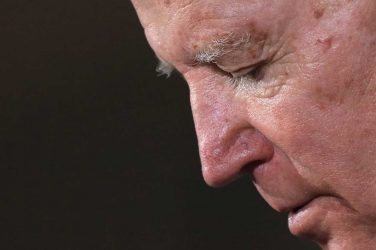 Now that impeached Brazilian President Dilma Rousseff is out of office, it is up to the newly empowered administration of President Michel Temer to clean up Brazil’s macroeconomic mess. Can Temer’s government save Brazil’s crumbling economy?
Now that impeached Brazilian President Dilma Rousseff is out of office, it is up to the newly empowered administration of President Michel Temer to clean up Brazil’s macroeconomic mess. Can Temer’s government save Brazil’s crumbling economy?
The situation is certainly dire. In fact, Brazil has lately been experiencing the most powerful economic contraction in its recent history. Its per capita gross domestic product (GDP) will be more than 10% smaller this year than it was in 2013. And unemployment has soared to more than 11%, up four percentage points from January 2015.
Brazil has no easy route to recovery for a simple reason: the current rout derives from the intensification in recent years of long-standing economic vulnerabilities – in particular, fiscal profligacy and anemic productivity growth.
Consider Brazil’s fiscal position, which has deteriorated rapidly since 2011, with a 3.1%-of-GDP primary surplus giving way to a deficit of more than 2.7% of GDP, leading to an overall budget deficit of close to 10% of GDP. In fact, the groundwork for that deterioration was laid a long time ago.

Brazil’s primary government expenditures as a proportion of GDP rose from 22% in 1991 to 36% in 2014. Much of that spending can be explained by a commitment to tackling endemic poverty – an effort that included the world’s largest conditional cash-transfer program, among other things – without reducing the privileges enjoyed by Brazil’s better-off citizens.
For some time, Brazil’s government was able to fund higher expenditure with tax revenues, which also rose as a result of levies on rising consumption and labor-market formalization. And high global commodity prices helped sustain GDP growth of around 4.5% per year from 2003 to 2010, which also bolstered government revenues.
But, of course, the formal lab our force cannot expand forever, and commodity prices always fall eventually. Unfortunately, Brazil failed to take advantage of the good times to reap productivity growth.
Indeed, only 10% of Brazil’s GDP growth in 2002-2014 can be attributed to total factor productivity gains, while two-thirds was the result of an increase in slightly better-educated workers entering the lab our force. So when Brazil’s tax-revenue boosters finally collapsed, legally mandated increases in public spending drove Brazil rapidly toward a fiscal cliff.
Today, counter-cyclical policies are not an option; there simply isn’t enough fiscal or monetary space. This leaves Brazil’s government with only one real option for restoring business confidence and reviving economic growth: tackling Brazil’s structural weaknesses.
The good news is that Temer’s government seems to recognize this imperative. Already, it has proposed to Brazil’s Congress a constitutional amendment forbidding for the next 20 years nominal annual increases in public expenditures, including at the subnational level, that exceed the previous year’s inflation rate.
Provided that inflation stabilizes at some lower level, such a cap would cause public expenditure as a share of GDP to decline as soon as the economy began to grow again. If increases in tax revenues accompany GDP growth, fiscal imbalances and the accumulation of public debt would automatically be addressed. At a time when Brazil has little flexibility in its budget, such a rule could turn out to be a fiscal game changer.
Of course, a cap on expenditure growth would not by itself eliminate the need to address existing budget rigidities. Temer’s government has declared its intention to present to Congress a pension reform plan for precisely this reason.
As for productivity, the government is focused on reducing waste caused by insufficient infrastructure construction in recent decades. Scaling up infrastructure investment also promises to spur private investment in other sectors.
The key will be to fine-tune the division of responsibilities between the private and public sectors – including independent regulatory agencies – in the various segments of infrastructure services.
Temer’s government also hopes to tap investment in human capital as a source of productivity growth. As it stands, private companies in Brazil invest less in personnel training than those in other countries with similar per capita incomes, owing largely to disincentives embedded in tax and labor laws – incentives that Temer’s government has proposed to change.
To maximize the impact of these efforts, Temer’s government should also focus on reducing waste in the private sector caused by other problems with the business environment. The more efficient use of human and material resources would make firms more competitive and boost Brazil’s total-factor productivity, especially if Brazil’s human capital were enhanced.
Add to that efforts to facilitate foreign trade, and Brazil’s “animal spirits” of entrepreneurship could be unleashed, enabling Brazil to escape the current crisis and move toward a more prosperous future.
Otaviano Canuto, former State Secretary for International Affairs at the Brazilian Ministry of Finance, is Executive Director on the Board of the World Bank for Brazil, Colombia, the Dominican Republic, Ecuador, Haiti, Panama, the Philippines, Suriname, and Trinidad and Tobago. A former vice president and senior adviser at the World Bank, he previously served as Executive Director of the IMF and Vice President of the Inter-American Development Bank. The views expressed here are the author’s own and do not necessarily reflect those of the World Bank or any of the governments he represents.









